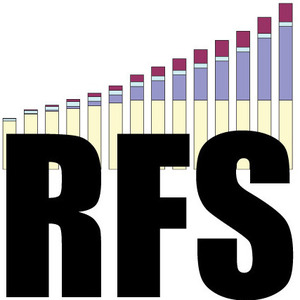EPA to finalize 2014, 2015 and 2016 RFS rules by November

April 10, 2015
BY Erin Krueger
The U.S. EPA has posted a notice to its website announcing that the volume requirements for the 2014, 2015 and 2016 renewable fuel standard (RFS), along with the 2017 volume requirement for biomass-based diesel, will be finalized by Nov. 30. A portion of the new compliance schedule is the result of a proposed consent decree in litigation brought against EPA by the American Petrochemical Institute and American Fuel and Petrochemical Manufacturers.
Under the proposed consent decree, the EPA said that it will propose 2015 RFS volume requirements by June 1 and finalize volume requirements for 2014 and 2015 by Nov. 30. Also under the decree, the EPA will resolve a pending waiver petition for 2014.
Advertisement
Advertisement
Outside the scope of the decree, the EPA has committed to propose RFS volume requirements for 2016 by June 1 and finalize them by Nov. 30. The agency also said it will finalize the RFS biomass-based diesel volume requirements for 2017 on the same schedule. Regarding the 2014 standard, the EPA said it will re-propose 2014 volume requirements by June 1 that reflect the volumes of renewable fuel that were actually used in 2014.
The consent decree relates to a lawsuit filed against the EPA by the API and AFPM on March 18 in the U.S. District Court for the District of Columbia. In the complaint, the oil groups allege the EPA has violated a nondiscretionary duty under the Clean Air Act to establish renewable fuels obligations for 2014 and 2015 and to approve or disapprove a petition filed by the API and AFPM to waive, in part, the 2014 RFS. That waiver petition was submitted to the EPA in August 2013.
Documents published by the EPA explain that the consent decree is not yet final. While it has been signed by the API and AFPM and lodged with the court, it has not been signed by EPA and has not been signed or entered by the court at this time. According to a notice filed by the EPA with the court, the consent decree is not final and cannot be entered by the court until the EPA administrator provides a reasonable opportunity by notice in the Federal Register for members of the public to comment in writing. Following the public comment period, if none of the comments disclose facts or considerations that indicate the decree is inappropriate, improper, inadequate or inconsistent with the CCA requirements, the administrator will request that the court enter the decree.
Advertisement
Advertisement
The National Biodiesel Board said it is supportive of the EPA’s announcement. “We are pleased to see the EPA make these further commitments toward ending these delays,” said Anne Steckel, vice president of federal affairs at the NBB. “Biodiesel is the most successful EPA-designated advanced biofuel under the RFS to date, and the Obama administration should be doing everything it can to promote biodiesel so we can show that advanced biofuels are here today, cutting greenhouse gas emissions by more than 50 percent, creating jobs and reducing our dependence on global petroleum markets that wreak havoc on our economy. The RFS is the most successful policy we have for reducing emissions in the transportation sector, and it is working. We applaud the EPA for taking this step and look forward to working with the administration in the coming weeks to get this program back on track.”
The NBB noted that ongoing questions will remain as to the volume levels proposed by EPA but the organization is hopeful since the re-proposed 2014 volume requirements for biomass-based diesel will reflect the volumes that were actually used, which is around 1.75 billion gallons.
Related Stories
The U.S. EPA on July 8 hosted virtual public hearing to gather input on the agency’s recently released proposed rule to set 2026 and 2027 RFS RVOs. Members of the biofuel industry were among those to offer testimony during the event.
The USDA’s Risk Management Agency is implementing multiple changes to the Camelina pilot insurance program for the 2026 and succeeding crop years. The changes will expand coverage options and provide greater flexibility for producers.
President Trump on July 4 signed the “One Big Beautiful Bill Act.” The legislation extends and updates the 45Z credit and revives a tax credit benefiting small biodiesel producers but repeals several other bioenergy-related tax incentives.
CARB on June 27 announced amendments to the state’s LCFS regulations will take effect beginning on July 1. The amended regulations were approved by the agency in November 2024, but implementation was delayed due to regulatory clarity issues.
SAF Magazine and the Commercial Aviation Alternative Fuels Initiative announced the preliminary agenda for the North American SAF Conference and Expo, being held Sept. 22-24 at the Minneapolis Convention Center in Minneapolis, Minnesota.
Upcoming Events










